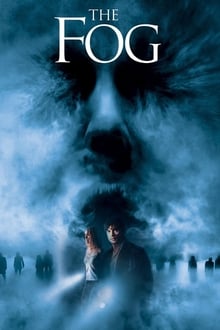
I have nothing against remakes… but at least try to do them well!
I've seen John Carpenter's film The Fog a few years ago, but I remember it well and how pleasant it was to see it. The original film didn't shed a drop of fake blood, it wasn't the kind of extremely visual film we've grown used to in recent years, with blood spurting everywhere and chunks of flesh flying towards us. Carpenter made a clean film, without the jumps that made us fall out of our chairs, but tense, very tense and full of mystery. And ultimately, that's really what made the film work so well… and that's what this film lacks, precisely!
The remake maintains, in essence, the script of its predecessor: Antonio Bay is an American coastal city that is about to celebrate the centenary of its foundation when mysterious occurrences and macabre deaths begin to happen, always related to a strange-looking fog, quite dense and somewhat greenish. However, the discovery of an old diary, written by one of the city's founders, finally brings some clarifications: after all, the entire city was founded at the cost of dozens of innocently killed human lives, and now, a hundred years later, his souls are returning from the sea, desirous of revenge.
I confess that I expected more from this film. The truth is, if I didn't really know what happens in this movie (thanks to Carpenter's movie) I don't know if I would understand what's going on here. Terribly poorly written, the script fails to convey the whole story to us, and new audiences run the risk of not understanding everything. It's a messy story, with flaws and missing parts. On the other hand, the film lacks any kind of tension, suspense or functional mystery. It has some good things, it tries to involve more characters, to take the focus away from that isolated broadcaster at the lighthouse, but the truth is that I don't know if this was really a good idea, since the film was much less clear and understandable than its predecessor and none of the characters manages to engage us, or capture our sympathy and interest.
Directed by Rupert Wainwright, it was the last feature film of his career, and although John Carpenter lent his name to the film, he has publicly stated that he was not involved in the project. The cast has several names and actors, but none particularly sounding name, and none of the actors was able to shine or really give us a work worthy of being fully appreciated, in a positive way.
On a technical level, the film has a fairly regular cinematography and makes good use of all the filming locations used. The visual effects and CGI work quite well, and the fog is truly impressive and even beautiful. But the film's redeeming qualities end here. I would like, as a historian, to highlight in particular my repudiation and disgust for the way they recreated the boat scenes, where we see Blake and his traveling companions. As the event takes place at the end of the 19th century, it is inconceivable and unacceptable that the production decided to use clothing, props and even a ship style from the late 18th century, that is, from a period one hundred years prior to the one intended to be retracted. This is mocking with history, and a sign of utter negligence on the part of the producers and the technical team.